The Power of Music: Transforming the world through sounds from all cultures
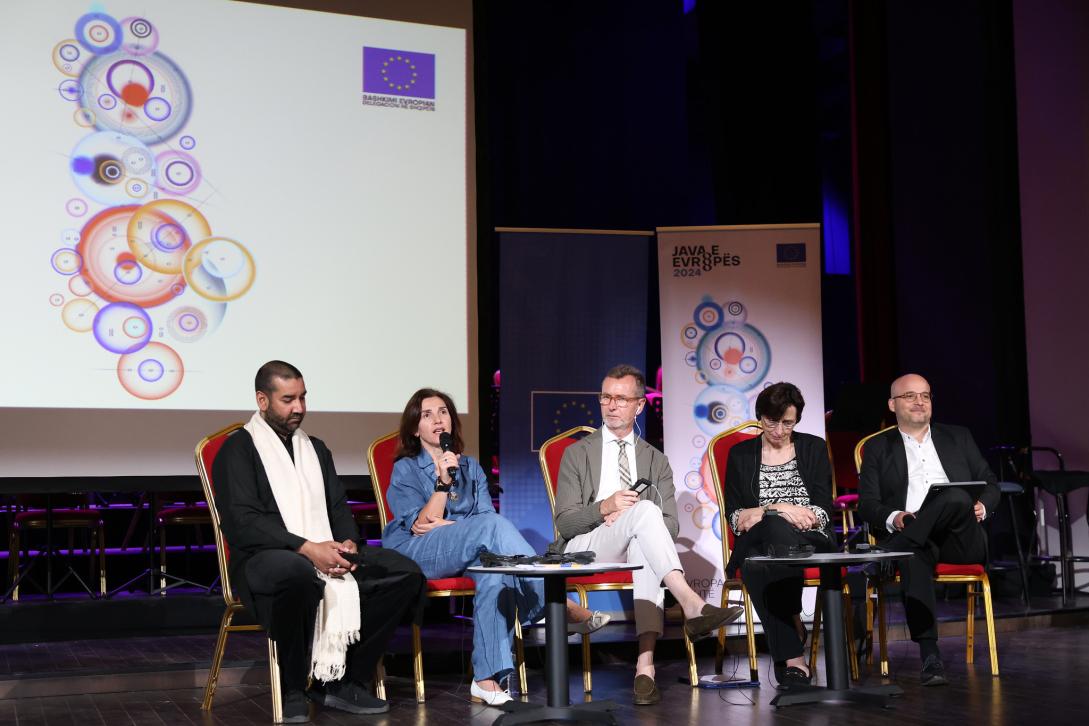
When a young violinist left Albania in 1991, following the collapse of the communist regime, to go to Italy, she had only one language to communicate: music. Born and raised in an isolated country where Europe and all it represented were forbidden, she, like many artists of her age and background, had dreamed of the day she could play music without restrictions, fear, or the risk of being punished.
"We have the value of what we have chosen. For all musicians, music is like praying in every religion, an intimate moment with God. Music is this deep, and the emotions of what we believe in are so strong that we can transmit them despite our passports," said Abigeila Voshtina, now the head of the National Theatre of Opera and Ballet in Tirana.
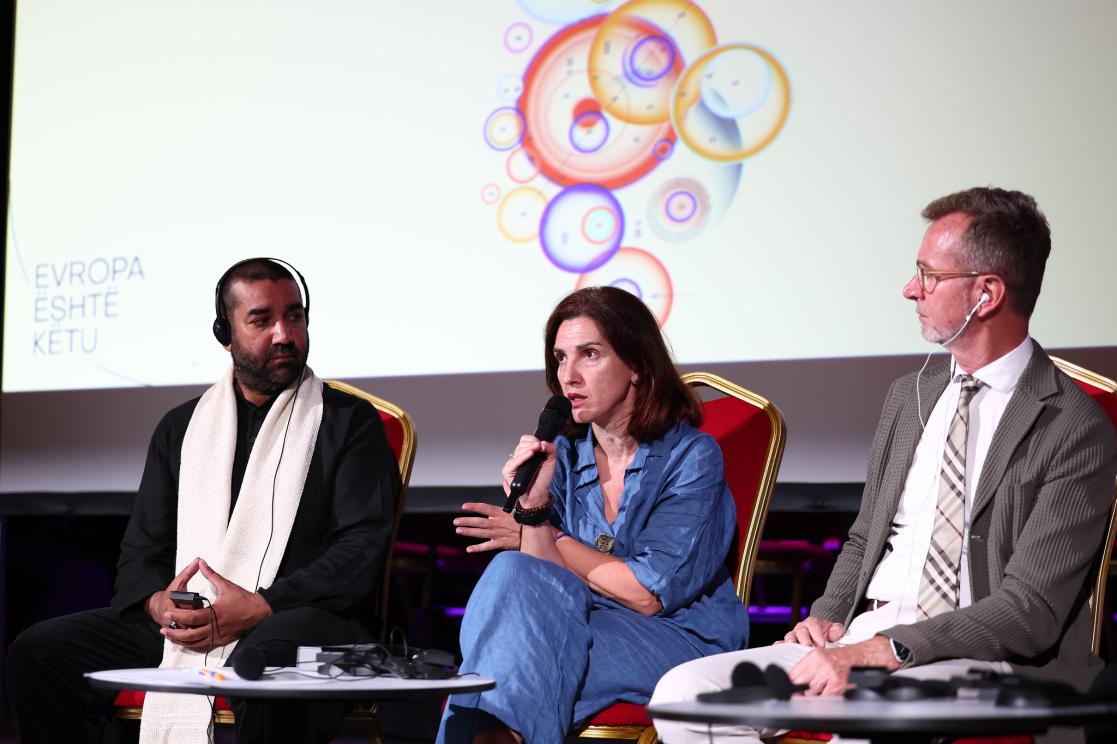
EU Delegation to Albania
Voshtina was one of the speakers at the open discussion, “How Could Music(ians) and Art(ists) Create a Better World?”, organized by the EU Delegation in Albania as part of the 2024 Europe Week. The discussion aimed to explore the possibilities art creates to connect, communicate, and celebrate cultural diversity, building bridges instead of walls.
Emphasizing the effort to build a Europe where everyone feels at home—regardless of appearance, who they love, how they pray, or where they are born—the EU Ambassador to Albania highlighted the equalities that unite us beyond geography, social background, and political affiliation.
“We have decided to put music at the centre of our program, based on the intuition that music is a language that everyone understands and can be a powerful tool to promote European values, or in other words, to promote ‘the sound of Europe.’ Our common values give us our identity and strength as Europeans. Thanks to those values, we have been able to continuously deepen our cooperation while respecting the particularities of our nation-states, their language, culture, and systems of solidarity and democracy—‘Unity in diversity,’” noted EU Ambassador to Albania Silvio Gonzato.
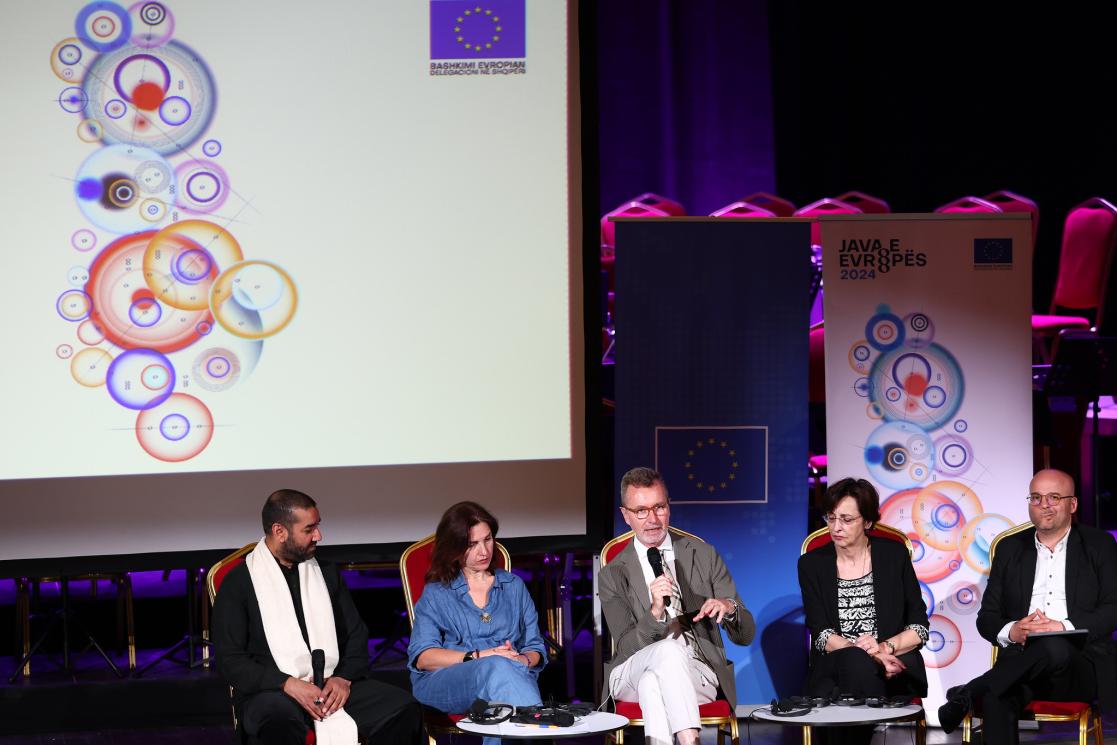
EU Delegation to Albania
The discussion brought to light different experiences, focusing on human rights and inclusion, and explored how participating in music activities promotes social connection and emotional well-being.
“Art provokes thought and discourse. It makes us feel and think, often in new ways. Art pushes the boundaries of what is possible and conceivable. We are transformed by experiencing art—made richer, nobler. Art tells us there is a higher purpose to life. Audiences attend concerts to listen to wonderful music, and good music has the power to transport and uplift listeners. The effect of art on society is overwhelmingly positive. It helps make sense of the world we live in, delights us, lifts our mood, and inspires us to be better at whatever we do,” said Suchet Malhotra, Ethno Programme Director at Jeunesses Musicales International (JMI), the world's largest non-profit network enabling young people to develop through music.
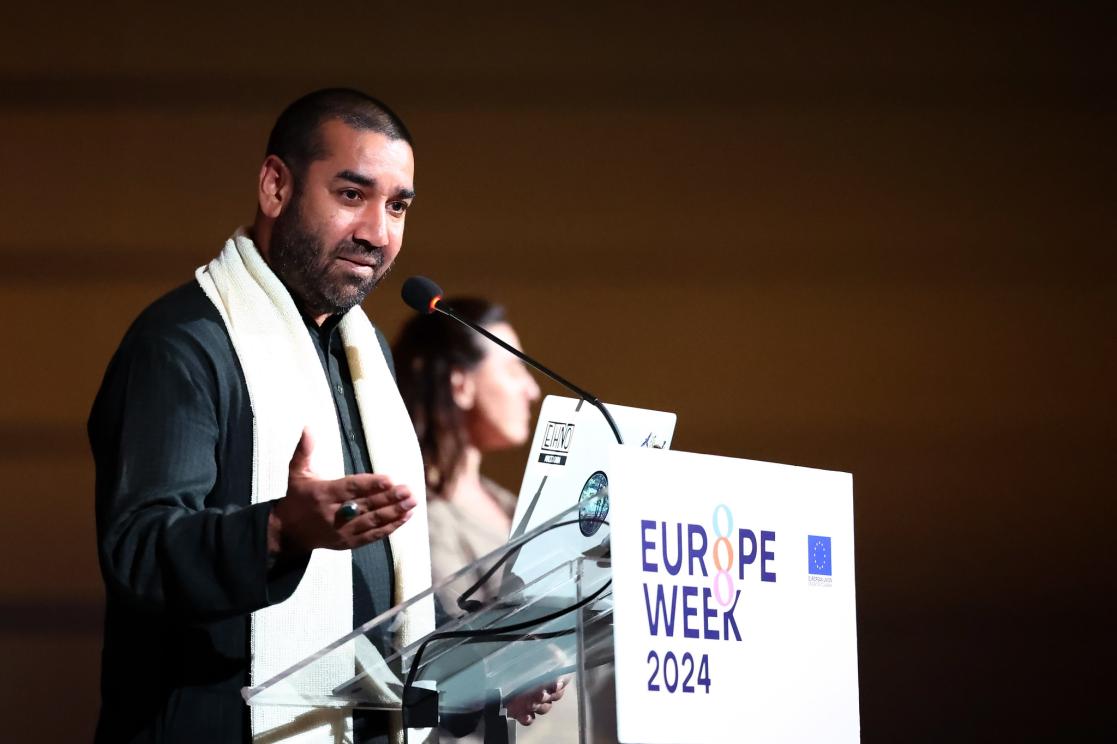
EU Delegation to Albania
Present today in over 40 countries with over 40,000 diverse musical activities per year, the Ethno program for folk, traditional, and world music is based on intercultural sharing using peer-to-peer learning and teaching methodologies.
“We see wars and conflicts stemming from an inability to listen to each other, to accept that we are different (and that this is valued and important). Ethno allows us to appreciate each other despite differences in language, culture, and ethnic background. Young people teach each other the music from their countries and cultures. It provides a unique opportunity for young people from across the world to come together and engage through music characterized by respect, generosity, and openness,” Malhotra explains.
While music and musicians strive to create a better world, their own world inside rehearsal rooms is filled with pressure, emotions, and enormous efforts seeking perfection. Dimka Migic-Vladkovic, Mental and Wellbeing Coach for musicians, affirms the effects of the pressure they feel when they perform. “The competition and demand are huge; they feel exposed and criticized. The consequences are stage fright, nervousness, insecurity, low self-esteem, and low self-confidence. Listening to and talking with them, I build their self-confidence and establish a healthy attitude toward their performance,” she said.
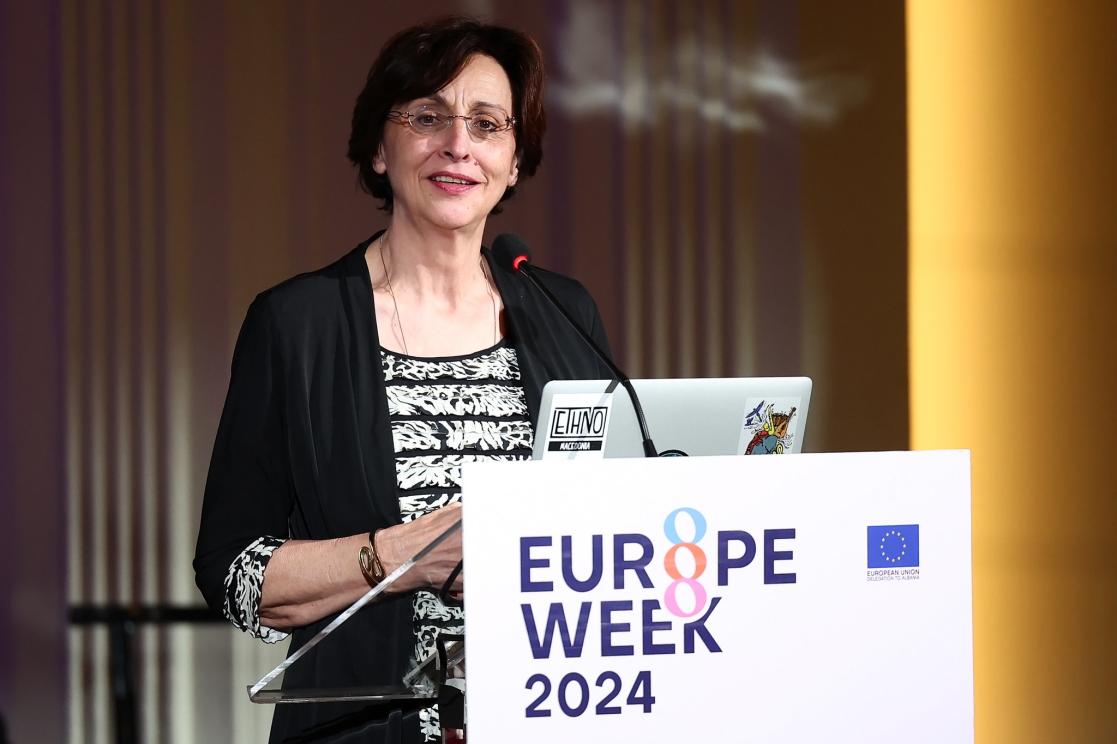
EU Delegation to Albania
Teaching them different exercises to relax the body and manage negative thoughts, self-doubts, and self-criticism is one goal. Another is preventing muscle tensions that lead to body injuries and pain.
The participants showcased different perspectives on creating a better world through small steps, regional initiatives, or personal examples, promoting the role music has in the future.





